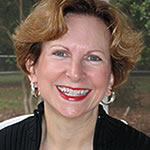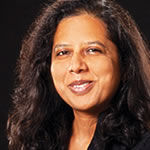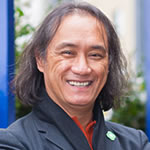 Professor Elizabeth Adams St Pierre
Professor Elizabeth Adams St Pierre
University of Georgia, Georgia, USA
A professor in the Department of Educational Theory and Practice in the College of Educatiuon at the University of Georgia, Elizabeth Adams St. Pierre’s work focuses on critical and poststructural theories of language and the subject and what she has called post qualitative inquiry or post inquiry. She asks what might come after conventional humanist qualitative research methodology. She’s especially interested in the new empiricisms/new materialisms as well as new research practices enabled by the ontological turn.
Prof Elizabeth Adams St Pierre’s research interests bring critical, feminist, and poststructural theories to bear on a range of overlapping interests: the construction of subjectivity; qualitative research methodology; the reading/writing/language theories of secondary English education; the reading practices of adult expert readers; and literacy practices in alternative sites, especially adult women’s book clubs.
Professor Monika Kirloskar-Steinbach
Oxford College of Emory University, USA
Dr Albert Refiti
Auckland University of Technology, New Zealand
Dr Albert Refiti looks back with nostalgia as he describes what he calls his ‘classic village upbringing’ in Samoa before coming to New Zealand when he was 13 to continue his education.
Leali’ifano, Albert’s matai (chief) title, is from Vaovai in Falealili however he was raised in Fasito'o Uta. Albert’s grounding in academia started with the bible and the church, learning from the faifeau (minister) in his village. He credits the bible as the first text to allow him to imagine possibilities, and for him it was his first experience with the power of interpretation.
He received his architecture degree from the University of Auckland in 1990 and worked as an architect for a year. He then travelled to London where he continued his work as an architect before starting a Master’s degree at the University of Westminster.
Leaving his Master's degree unfinished, he came back to New Zealand and worked as an architect again, and started teaching at the University of Auckland’s School of Architecture part-time. He took on other teaching roles at Unitec and then at Manukau Institute of Technology's School of Visual Arts before he started at AUT in 2002. He has been here ever since.
Albert completed his Doctor of Philosophy in 2015, titled Māvae and Tōfiga: Spatial Exposition of the Samoan Cosmogony and Architecture. His thesis looks at spatial exposition of Samoa architecture and Pacific concepts of vā (space).
Albert says this was a good area to explore as it merged his background in architecture and his Pacific identity. His research allowed him to write about Pacific and Polynesian ideas.
His ongoing research project, Pacific Spaces with Tina Engels-Schwarzpaul, sees the two convene an international group of academics who meet twice a year and put together publications on Pacific notions of space and how they are enacted in different cultures around the Pacific.


